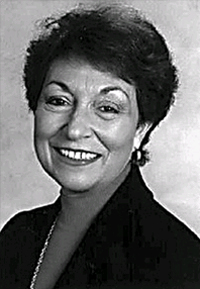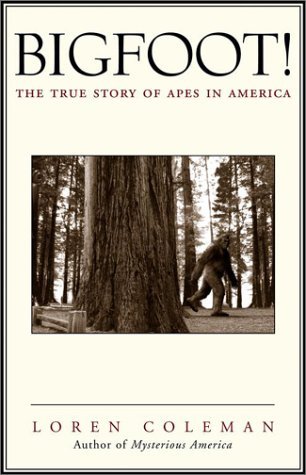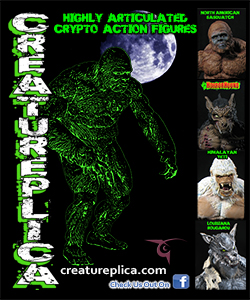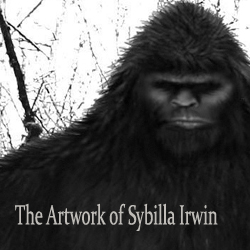Founder of Banned Books Week Dies
Posted by: Loren Coleman on April 13th, 2009

Judith Krug, a director of the Chicago-based American Library Association and a founder of its Banned Books Week, has died. She was 69.
Judith Platt, president of the ALA’s Freedom to Read Foundation, says Krug died late Saturday, April 11, 2009, at Evanston Hospital, Evanston, Illinois, in suburban Chicago following a battle with stomach cancer, according to the AP. She says Krug had been ill for more than a year.
Judith Fingeret Krug was an American librarian and anti-censorship activist. She was appointed as the Director of the American Library Association’s Office for Intellectual Freedom in 1967 and Executive Director of the Freedom to Read Foundation in 1969.
She earned her B.A. from the University of Pittsburgh, where she studied political theory. In 1964, she earned her M.A. at the Graduate Library School of the University of Chicago. She has held positions in various Chicago libraries-including Reference Librarian at the John Crerar Library and Head Cataloger at the Northwestern University Dental School Library. Before assuming her present duties in the Office for Intellectual Freedom, Mrs. Krug was the research analyst for the American Library Association. In addition, she also sat on the 2006 panel of judges for the PEN/Newman’s Own Award, which recognizes the First Amendment as it applies to the written word.
Banned Books Weeks has been observed since 1982, usually during the last week of September or early October. ALA officials say the event celebrates intellectual freedom. Cryptozoology books are some of the kinds of books that get banned, for a variety reasons.
Judith Krug once said, “You should have access to ideas and information regardless of your age. If anyone is going to limit or guide a young person, it should be the parent or guardian — and only the parent or guardian.” She was quoted thusly in the article, “A Library That Would Rather Block Than Offend” by Pamela Mendels, The New York Times, January 18, 1997. In the piece, Mendels wrote that Krug also said: “We want to provide as much information as we can, and say to our users: ‘It is all here. You make the choice.'”
What kinds of books are banned and burned? This personally came home to me last year.
Below is the visual of a book-burning incident, which occurred last summer, pre-Georgia Bigfoot hoax. (Warning, the language is harsh, childish, profane, and reflective of M. Whitton’s and R. Dyer’s own personal homophobic issues.)
Shelley Cox, a retired rare book iibrarian at Southern Illinois University, Carbondale, Illinois, informed me in 2008 that she would be reading from that abused book of mine at a banned book event.
Cox wrote me last September:
“Just a note to let you know that I will be reading from your banned and burned book, Bigfoot! The True Story of Apes in America, at the southern Illinois celebration of Banned Book Week, on Oct 2, 2008, 7:00 PM, at the Longbranch Coffee House in Carbondale. This celebration has been going on for 4 years.
“I thought that it would be interesting for people to know that books are still burned because of their author’s thoughts, even though the burners are a bunch of publicity-hunting hoaxers….If the library is willing, I would donate a few of your more recent books to a collection they have of authors who have attended/graduated from SIU. It has not been kept up over the years but it did have a few of your earlier books in it when I left. The books in the open stacks disappeared years ago, unfortunately.”
I appreciated Shelley Cox’s notable honor for Bigfoot! The True Story of Apes in America during Banned Book Week. Thus, I was touched again when I heard of Judith Krug’s sad passing.
Cox is also to be thanked for being a patron of the “Save the Museum” movement.

Bigfoot! The True Story of Apes in America.
About Loren Coleman
Loren Coleman is one of the world’s leading cryptozoologists, some say “the” leading living cryptozoologist. Certainly, he is acknowledged as the current living American researcher and writer who has most popularized cryptozoology in the late 20th and early 21st centuries.
Starting his fieldwork and investigations in 1960, after traveling and trekking extensively in pursuit of cryptozoological mysteries, Coleman began writing to share his experiences in 1969. An honorary member of Ivan T. Sanderson’s Society for the Investigation of the Unexplained in the 1970s, Coleman has been bestowed with similar honorary memberships of the North Idaho College Cryptozoology Club in 1983, and in subsequent years, that of the British Columbia Scientific Cryptozoology Club, CryptoSafari International, and other international organizations. He was also a Life Member and Benefactor of the International Society of Cryptozoology (now-defunct).
Loren Coleman’s daily blog, as a member of the Cryptomundo Team, served as an ongoing avenue of communication for the ever-growing body of cryptozoo news from 2005 through 2013. He returned as an infrequent contributor beginning Halloween week of 2015.
Coleman is the founder in 2003, and current director of the International Cryptozoology Museum in Portland, Maine.










That is sad to hear. I’ve been celebrating Banned Book week for several years now, and I’ve been encouraging the couple hundred people that read my blog to do the same. Last year was “Little Black Sambo”, I might have to do “Bigfoot” this year, even though I already have read it. I didn’t realize cryptozoology books were being banned, too.
RIP, Ms. Krug.
Thank you, Loren, and list members, for acknowledging the loss of one of the most important living librarians. Judy Krug had been a founding figure in the Freedom to Read movement in librarianship, and a pillar of the American Library Association.
Cryptozoology books tend to get “passively” banned, in that libraries don’t tend to buy them because they make controversial statements that contradict the accepted scientific establishment–and also because they get stolen too quickly. In Loren’s alma mater, the only place his books could stay on the shelves was the non-circulating Alumni collection in Special Collections.
By getting burned last year, Loren’s books suffered an unusual level of censorship for the United States, but since it was a private citizen who instigated the bonfire, at least it is not the kind of institutionalized banning that goes on against Little Black Sambo and Huckleberry Finn.
Keep demanding that your local library buy and keep books on cryptozoology on the shelves!
i still dont understand why obviously mentally retarded people 9 such as Mr. Whitton ) burn books. It doesn’t do any good. Also, if they think burning it would stop people from reading it, they must be even stupider. Banning/burning something guarantees people will read it just because you banned/burned it.
TRY BANNING HOMEWORK AND STUDYING PEOPLE, AND YOU MIGHT START SEEING THOSE A’s ON YOUR KIDS REPORT CARD!!!